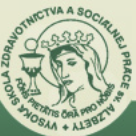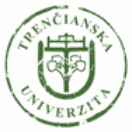Matej Bel University in Banská Bystrica is a public research university located in Banská Bystrica, a city in central Slovakia. It is named after the 18th-century Hungarian-Slovak Lutheran scholar Matthias Bel and provides undergraduate and graduate education in the humanities, social sciences, and natural sciences.
Overview
Student size: 6,269 students in the fall of 2022, including 4,313 undergraduates and 2,399 graduate students.
Faculty: 422 academic staff.
History and establishment time
Banska Bystrica had parish schools in the 13th century and Jesuit schools in the 17th century. In the 1856-1857 academic year, the first teacher training research institution was established here. In the 1949-1950 academic year, the Faculty of Education of the Slovak University of Bratislava established a branch here. In 1954, the Faculty of Higher Education was established. In 1964, the Faculty of Education was established. In 1973, the Faculty of Business of the University of Economics in Bratislava established a branch here, and in 1977 it was transformed into the Faculty of Service and Tourism Economics. On July 1, 1992, the Faculty of Education and the Faculty of Service and Tourism Economics were integrated, and Matej Bel University was officially established.
School Strength
Teaching: Provides a full range of university education opportunities in the fields of education, social issues, economics, law, politics, humanities and natural sciences, covering a variety of learning forms at the three levels of undergraduate, master and doctoral, and also provides courses taught in English and some French. Provide high-quality university education and continuing education by encouraging creative scientific and artistic research, so that students can better adapt to the needs of the workplace.
Research: As a center of research excellence, it actively conducts basic and applied research and cooperates with domestic and foreign institutions. Its research and development projects are funded by European structural funds. The school has 3 research centers, which promote the academic development in related fields.
International Exchange: It has established extensive cooperation with many universities around the world, such as the University of Bologna in Italy, Waseda University in Japan, Sogang University in South Korea and Indiana University in the United States. The cooperation forms are diverse, providing students with opportunities to study and exchange abroad.
Institutional Nature
Public University.
Educational Philosophy
Committed to promoting knowledge progress, combining scientific development with practical problems, encouraging creative scientific and artistic research, cultivating students' comprehensive abilities in academic, professional and social life, enabling students to find their place in the domestic and foreign labor markets, and meeting the learning needs of students of different ages through various forms of lifelong learning programs.
Key laboratories and disciplines
Key disciplines: Economics, law, education, political science, international relations, natural sciences, art and other disciplines are the school's advantageous disciplines, and have a high academic status and influence in Slovakia.
Laboratory situation: Although there is no explicit mention of particularly famous professional laboratories, from the perspective of its subject settings and scientific research activities, each discipline should be equipped with corresponding teaching and scientific research laboratories to support the development of teaching and scientific research work. For example, the School of Natural Sciences may have laboratories such as chemistry and physics to meet the needs of students' practical teaching and scientific research projects. .
Department Settings
The school has 6 colleges, including the School of Economics, the School of Arts, the School of Political Science and International Relations, the School of Natural Sciences, the School of Law, and the School of Education.
Ranking
Ranked 80th in the 2025 Eastern European University Ranking.
Ranked 551-600th in the 2024 European University Ranking.
Expenses
The tuition fees of public universities in Slovakia are relatively low. The undergraduate tuition fees are about 2000-5000 euros/year, the master's tuition fees are about 3000-6000 euros/year, and the doctoral tuition fees are about 4000-8000 euros/year.
Campus
Campus facilities: The campus is located in the city. Its library system is one of the largest university academic library systems in Slovakia. It has a rich collection of books and provides teachers and students with good learning and research resources. In addition, the school is equipped with complete sports facilities and cultural activity venues to meet students' extracurricular needs.
Campus life: The school has a variety of sports clubs, art groups and student organizations, providing students with rich social activities and promoting their all-round development.
-

St. Elizabeth College of Health and Social Work
-

University of St. Cyril and Methodius in Trnava
-

Matej Bel University in Banská Bystrica
-

Technical University of Kosice
-

Slovak University of Agriculture in Nitra
-

Comenius University in Bratislava
-

Pavol Josef Safarik University
-

Slovak University of Technology in Bratislava
-

Alexander Dubcek University, Trencin
-

University of Žilina
-

Mesoamerican University
-

Istmo University
-

Mariano Galvez University of Guatemala
-

Regional University of Guatemala
-

Galileo University
-

Francisco Marroquín University
-

Rafael Landívar University
-

University of the Valley of Guatemala
-

University of San Carlos of Guatemala
-

Technological Institute of Tlaxcala Plateau
-

Golfo University
-

Technological University of South Sonora
-

Technological University of Huejotzingo
-

Tizimín Institute of Technology
-

Chilpancingo Institute of Technology
